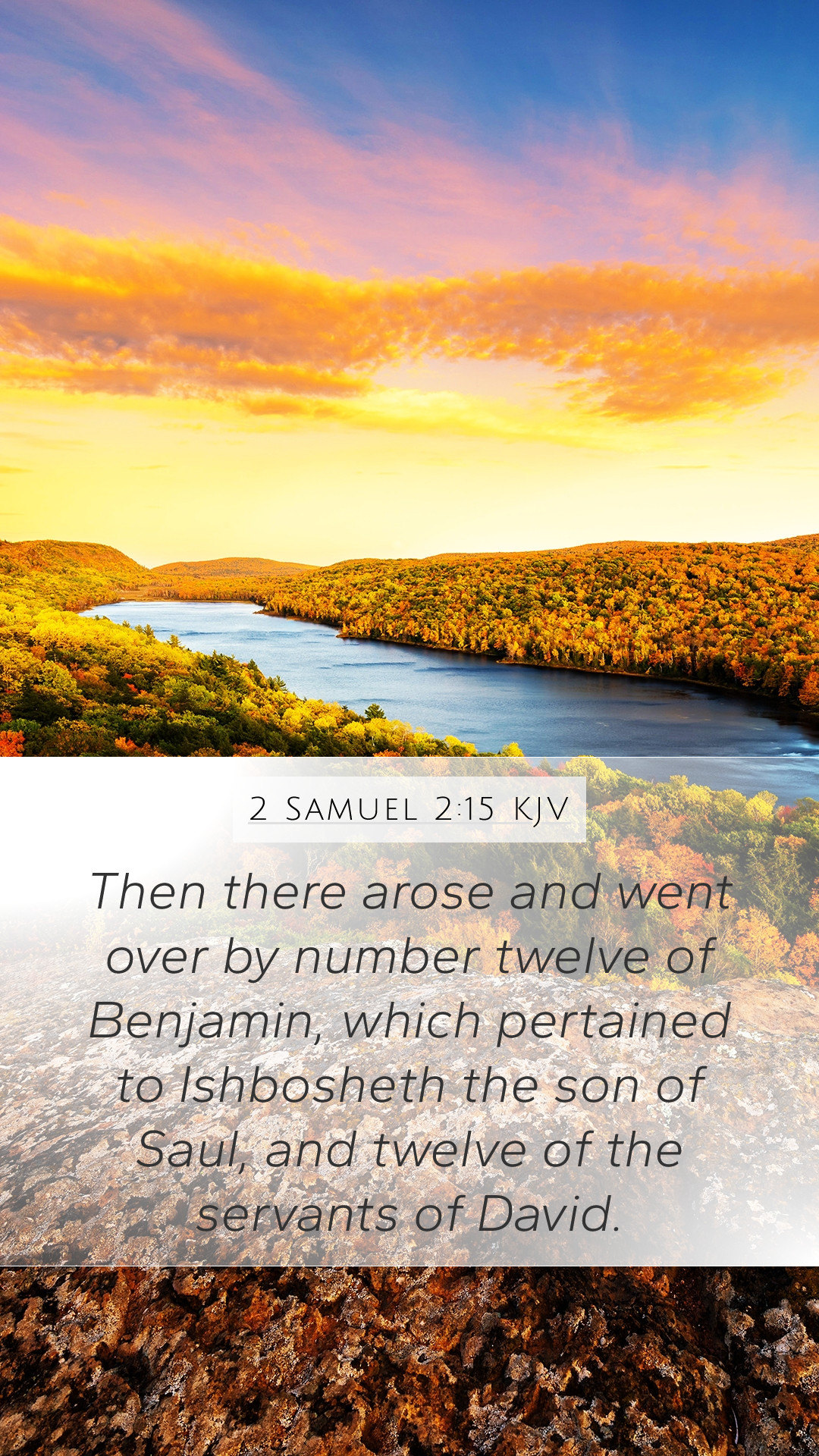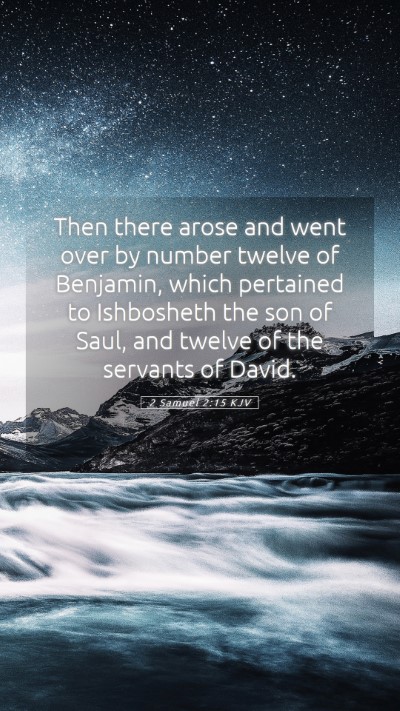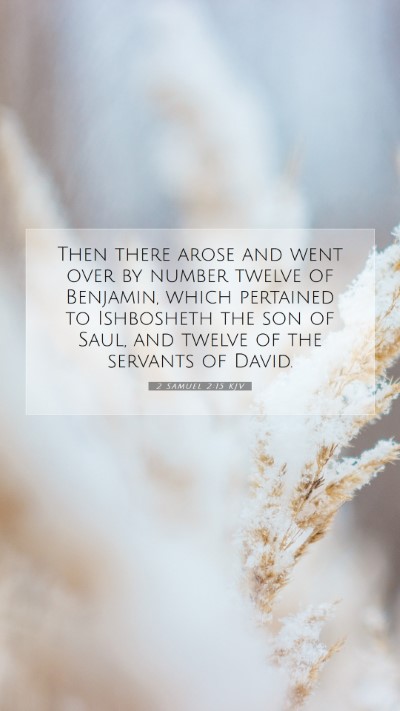Understanding 2 Samuel 2:15
Bible Verse: 2 Samuel 2:15 - "And there arose a battle between the servants of David and the servants of Ishbosheth, the son of Saul: and they met by the pool of Gibeon."
Summary of the Verse
This verse introduces a significant conflict between the followers of David and those loyal to Ishbosheth, Saul's son, amidst the power struggle following King Saul's death. The battle takes place near the pool of Gibeon, setting the stage for events that highlight themes of allegiance, conflict, and divine purpose in the unfolding narrative of Israel's monarchy.
Commentary Insights
-
Matthew Henry's Commentary
Matthew Henry notes that this verse reveals the division in Israel after Saul’s death. It emphasizes God’s sovereignty in the midst of human conflict. Henry explains that the battle signifies a time of testing for both factions, pivotal for understanding God’s choice of David as king over Israel.
-
Albert Barnes' Commentary
Albert Barnes provides an analysis that focuses on the geographical and historical context of Gibeon. He explains that the site of the battle reflects the struggle for leadership and legitimacy, highlighting the contention over the throne and the unfolding of God’s plan. Barnes emphasizes the implications of this conflict for Israel’s future unity and governance.
-
Adam Clarke's Commentary
Adam Clarke elaborates on the significance of the characters involved in the conflict. He discusses the motivations behind the loyalties of David's men versus Ishbosheth’s followers. Clarke brings attention to the personal sacrifices made by the warriors and their commitment to their respective leaders, showcasing the complexity of human relationships during political turmoil.
Key Themes and Concepts
- Division and Conflict: This verse illustrates the fractures within Israel due to competing claims for leadership.
- God’s Sovereignty: The events highlight the theological belief that God is orchestrating history despite human choices.
- Leadership Struggles: The power struggle between David and Ishbosheth reflects on the nature of kingship and governance in ancient Israel.
Applications in Bible Study
The verse can be explored through various Bible study topics such as:
- Bible study resources: Understanding the historical context of kingship in Israel.
- Bible study lessons: Examining the traits of leadership demonstrated by David and Ishbosheth.
- Bible study guides: Discussing the implications of loyalty and allegiance in personal faith journeys.
Cross References
- 1 Samuel 31:1-3: The death of Saul and its consequences.
- 2 Samuel 2:10: Ishbosheth's reign and its challenges.
- 1 Kings 1:5-6: Further conflict over kingship in Israel.
Conclusion
2 Samuel 2:15 serves as a crucial verse in understanding the dynamics of leadership and conflict in the early monarchy of Israel. By analyzing this passage through various commentaries, we can gain profound insights into biblical themes of sovereignty, struggle, and the nature of human allegiance. For those studying the Bible, this verse is an invitation to explore deeper themes of faith and historical context, enhancing one's understanding of Scripture and enriching Bible study insights.


